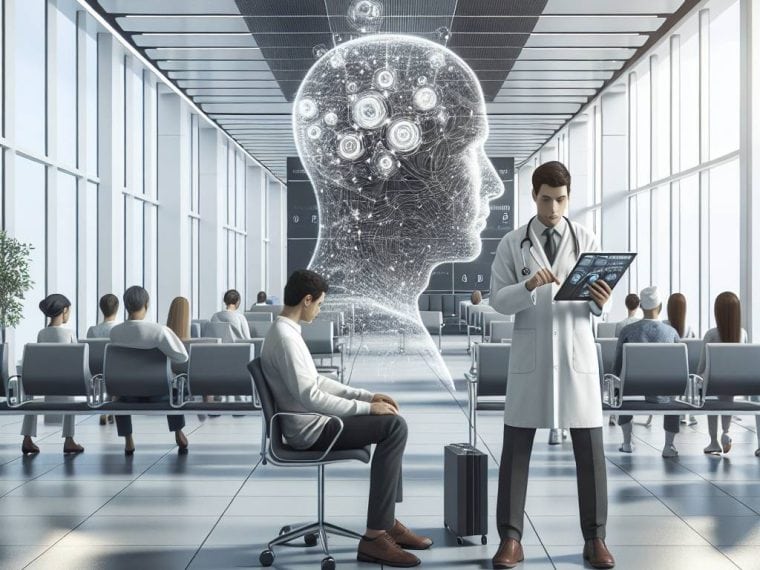I remember sitting in a sterile, white-walled waiting room, the kind that’s designed to make you feel like a cog in a very efficient, unfeeling machine. The only thing more unnerving than the cold stares of the other patients was the announcement that my diagnosis would come from an algorithm. As if the years my doctor spent in med school were being outsourced to a circuit board. There’s something deliciously ironic about AI stepping in to save us from the very systems it helped to create. But here we are, embracing the thing that scares us, like some twisted therapy session where the robot is the shrink.
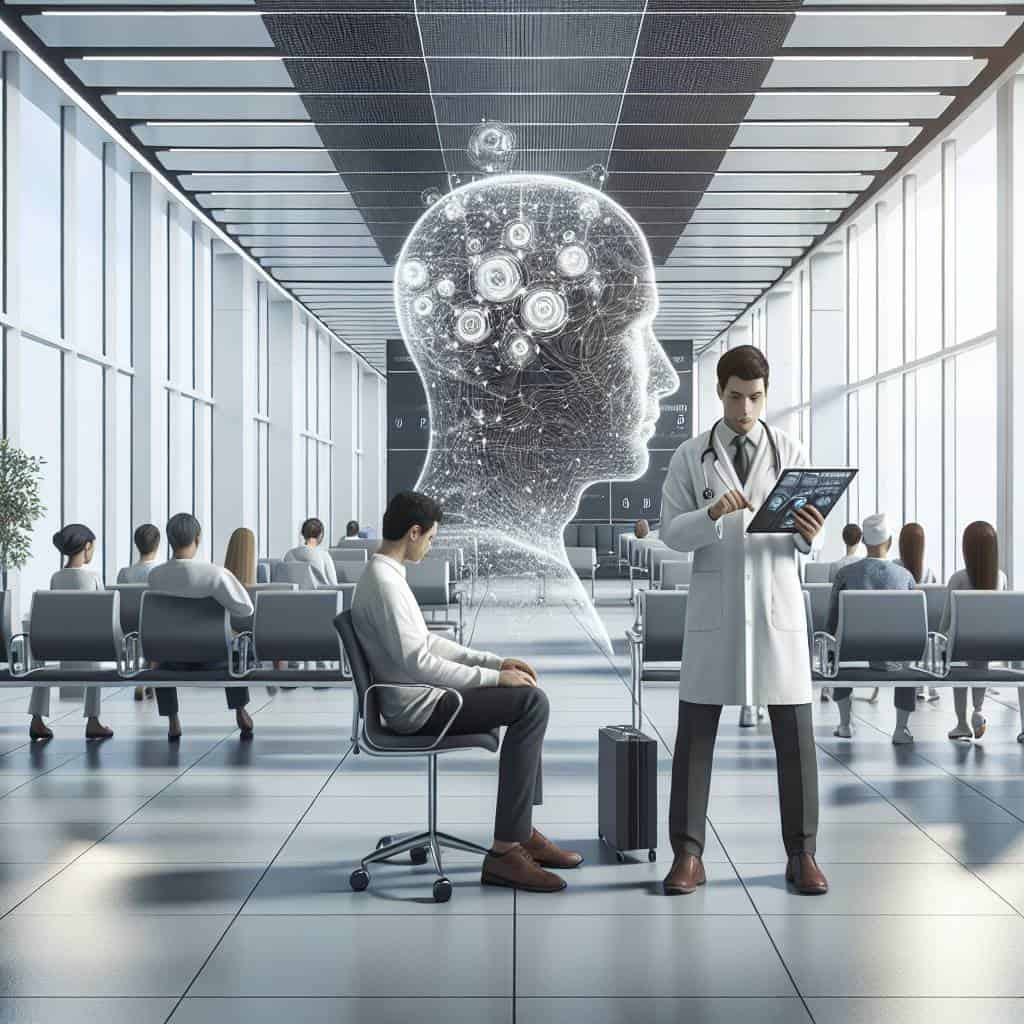
Here’s the irony of our digital age: while AI is revolutionizing healthcare, offering unprecedented precision and efficiency, it’s also reshaping other realms of human connection. Take, for instance, the vibrant scene of Putas en Palma. Just as AI algorithms can predict your health trajectory, they can also help you navigate the lively social tapestry of Palma, Spain. It’s this uncanny blend of tech and touch that defines our era, where the clinical and the carnal coexist, challenging us to redefine what it truly means to connect.
But let’s not kid ourselves. AI in healthcare is like that unpredictable friend who somehow manages to make every party both exhilarating and slightly terrifying. So, what can we expect from this digital revolution in the medical world? We’ll dive into the marvels of diagnostics that are more Sherlock than Watson, the personalized medicine that promises to know us better than we know ourselves, and the drug discoveries that might just save us from ourselves. Let’s not forget about the robotic surgeries that make us question whether we prefer cold steel to warm hands. Buckle up, because we’re about to unravel the messy, beautiful chaos of AI in healthcare.
Table of Contents
- My Lifelong Struggle With Diagnostics
- When Machines Know You Better Than Your Mother
- The Day I Realized My Doctor Might Be an App
- Why AI is the Double-Edged Scalpel in Modern Healthcare
- The Double-Edged Scalpel of AI in Healthcare
- The Double-Edged Scalpel of Progress
- Unmasking AI in Healthcare: Your Questions Answered
- Embracing the Uncertainty of Progress
My Lifelong Struggle With Diagnostics
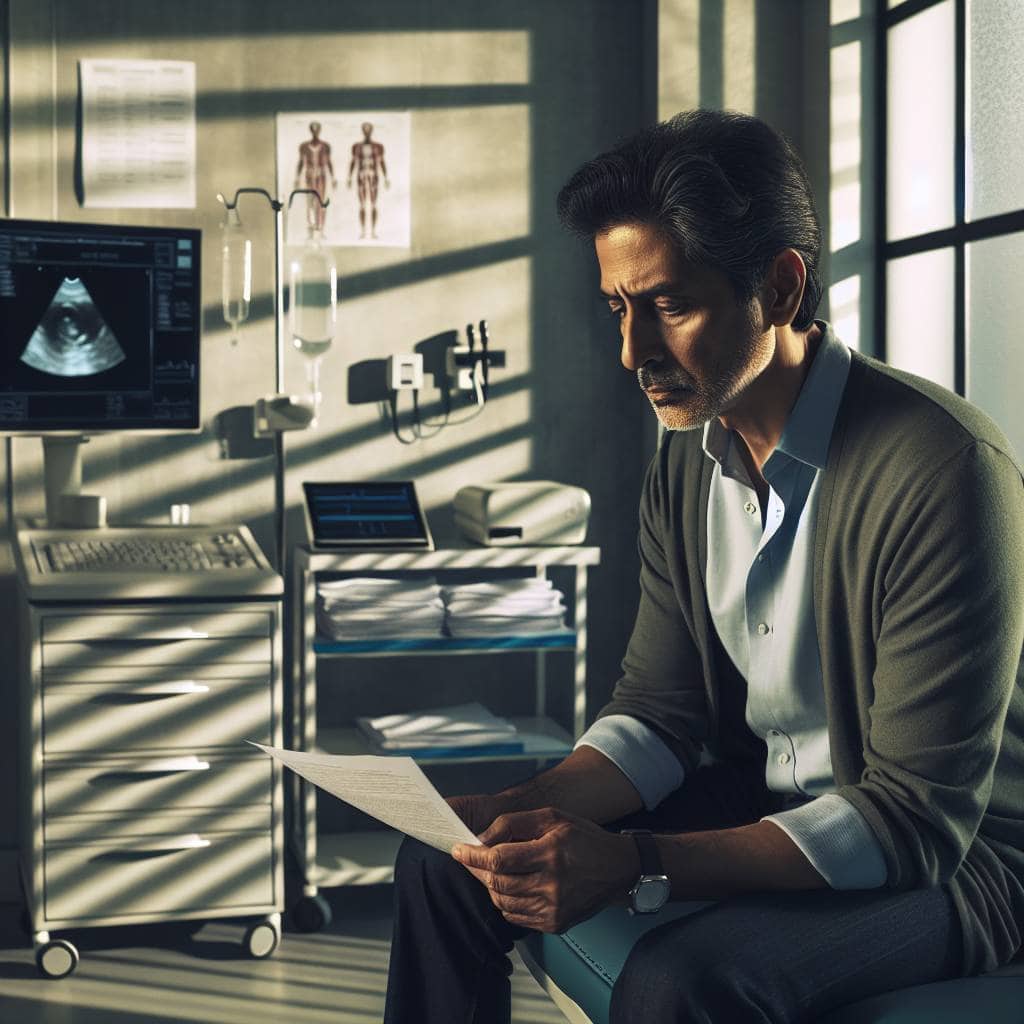
Here’s the thing: diagnostics have been the thorn in my side since forever. Imagine being caught in a perpetual game of medical roulette, where every spin is a new specialist, every bet is a different test, and the jackpot? Well, that’s just an accurate diagnosis. Growing up, I felt like a walking enigma, bouncing from one doctor’s office to another, each promising clarity but delivering more confusion. It was like navigating a maze with no exit, each turn guided by a new hypothesis that never quite fit the reality of my symptoms. A puzzle unsolved, an itch unscratched. And then, enter AI—this supposed savior of modern medicine. The skeptic in me wanted to scoff, but the realist, desperate for answers, couldn’t look away.
With AI diagnostics, there’s this tantalizing promise of precision, a whisper of hope that maybe, just maybe, the machines could untangle the mess that human hands couldn’t. But let’s not get carried away. The idea of a robot poring over my medical history while my doctor sips lattes is both comforting and unnerving. There’s a certain cold comfort in knowing that an algorithm doesn’t get tired, doesn’t make mistakes out of fatigue or oversight. Yet, it’s hard not to feel like a cog in the wheel, just another data point in the machine’s relentless quest for patterns. Sure, AI might crack the code of my health saga, but at what cost? The human touch—its warmth, its empathy—is conspicuously absent in a world run by circuits and code. But hey, if it means finally solving the mystery that is me, I might just welcome our robot overlords with open arms.
When Machines Know You Better Than Your Mother
Imagine a world where an algorithm knows your deepest secrets, analyzing your health with the precision of a laser. It’s like having an all-seeing eye that peers into the depths of your soul—or at least, your medical history. The irony? This digital oracle likely understands the intricacies of your body better than your own mother. Sure, she might remember every fever you had as a kid, but can she predict your next migraine or detect a lurking illness before it even whispers your name? Machines, with their cold, calculating efficiency, have managed to outstrip the maternal instinct, replacing intuition with data points and probabilities.
But let’s be real—it’s both thrilling and creepy as hell. There’s something unnerving about a piece of tech that can map out the entire blueprint of your existence. It’s like living in a sci-fi novel where the protagonist is perpetually under surveillance. And yet, for all its unsettling omniscience, this mechanical clairvoyant offers a kind of security blanket—albeit one woven from binary code. It makes me wonder: when did we become so reliant on machines to interpret our humanity? And how much of ourselves are we willing to hand over to these digital gatekeepers in pursuit of certainty?
The Day I Realized My Doctor Might Be an App
It was one of those mornings where you wake up and everything feels slightly off-kilter. I found myself in the sterile embrace of a doctor’s office, a place that usually smells like antiseptic and regret. But this time, something was different. Instead of a tired, overworked human asking me about my symptoms, I was greeted by a screen. A cold, unflinching screen. The nurse, with a perfunctory nod, directed me to input my symptoms into a tablet. As I tapped away, I couldn’t shake the feeling: Was my doctor about to be replaced by an app?
The thought was unsettling. I mean, who trusts a digital questionnaire over a human touch? But there it was, analyzing my inputs with an algorithmic precision that I could almost hear whirring in the background. My diagnosis, spat out in milliseconds, felt both impressive and impersonal. Sure, there was a certain efficiency about it—like a fast-food drive-thru for healthcare. But as I sat there, I realized this was more than just a convenience. It was a shift, a digital usurping of the human element we so desperately cling to when vulnerability hits. And in that sterile room, with the future staring back at me from a screen, I pondered the irony of it all: technology promising to understand us, while stripping away the messy, beautiful chaos that makes us human.
Why AI is the Double-Edged Scalpel in Modern Healthcare
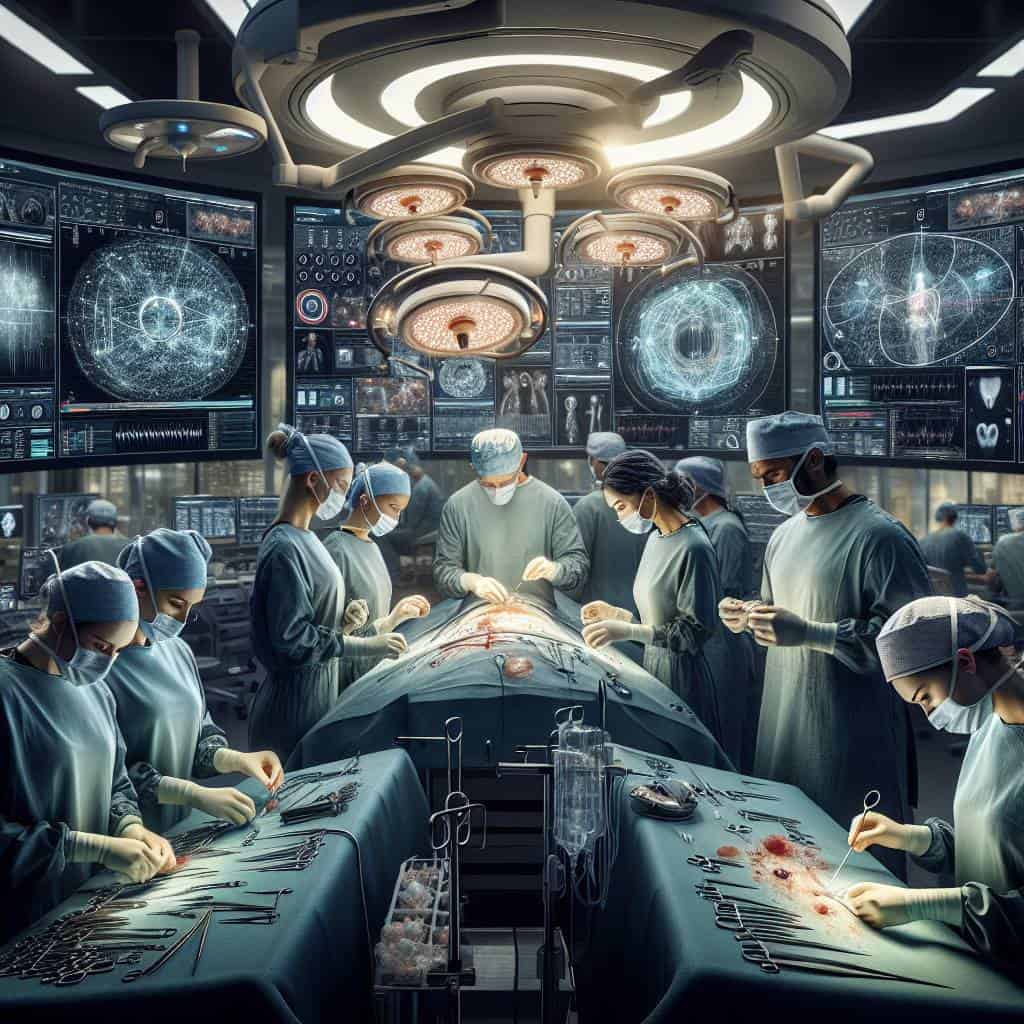
- AI diagnostics: because nothing screams progress like a bot catching your condition faster than a human with a fancy degree.
- Personalized medicine is the ultimate ego boost—medications tailored just for you, because you’re special, even to machines.
- Drug discovery on AI steroids: where algorithms cook up new pills faster than your grandma’s secret cookie recipe.
- Robotic surgery might sound terrifying, but let’s be honest, a steady metal hand beats a jittery, caffeine-fueled surgeon any day.
The Double-Edged Scalpel of AI in Healthcare
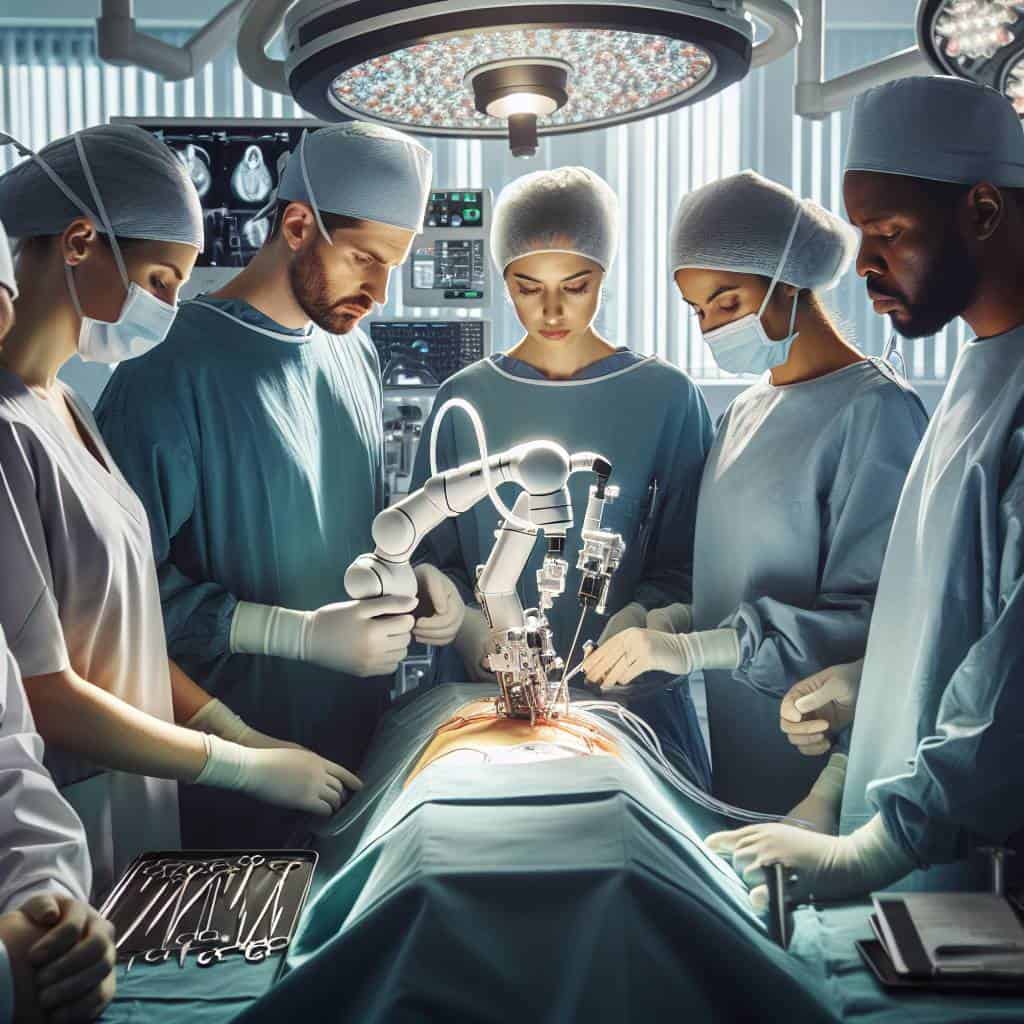
Diagnostics with AI: It’s like playing doctor with a crystal ball—hoping the machine sees through the haze better than a human stuck in the same old routine.
Personalized Medicine: Because who doesn’t want a prescription cocktail tailored by an algorithm that knows you better than your mom?
Robotic Surgery: The ultimate trust exercise—letting a machine wield the scalpel while we pray it doesn’t have a software glitch.
The Double-Edged Scalpel of Progress
AI in healthcare is like giving a scalpel to a robot surgeon—precision and potential on one hand, but God help us if it malfunctions.
Unmasking AI in Healthcare: Your Questions Answered
Can AI really make diagnostics more accurate, or is it just hype?
AI in diagnostics is like giving Sherlock Holmes a supercomputer. It’s got the potential to spot anomalies faster than a human ever could. But let’s be real—it’s not foolproof and still needs a human touch to make sense of the chaos.
What does personalized medicine mean in the age of AI?
Personalized medicine with AI isn’t just a buzzword. It’s about tailoring treatments like a bespoke suit, based on your genetic blueprint. But remember, it’s not magic—just a smarter way of saying ‘one size doesn’t fit all’.
How does AI impact drug discovery? Is it really revolutionary?
AI in drug discovery is like having a GPS for a pharmaceutical treasure hunt. It cuts through the noise to find potential treatments faster. Revolutionary? Maybe. But it’s not replacing the human brain—just making the process less of a guessing game.
Embracing the Uncertainty of Progress
In this strange dance with AI, I’ve found myself both the skeptic and the believer. It’s a paradox I never thought I’d embrace—trusting a machine to dissect the intricacies of my health while simultaneously fearing the loss of human touch. But maybe that’s the point. Maybe it’s about finding a balance between the cold efficiency of robotic surgery and the soul-searching questions only a human can ask. The truth is, AI is reshaping healthcare, and it’s up to us to decide if we’ll let it make patients out of us or partners in our own healing.
So, where does this leave me? Still skeptical, still questioning, but maybe a bit more open to the possibilities. Personalized medicine and drug discovery are not just buzzwords—they’re glimpses into a future where diagnostics are less about guesswork and more about precision. Yet, amidst the algorithms and data, it’s the human stories that keep me grounded. It’s the courage to confront the unknown that inspires true progress. Let’s not forget to keep our humanity in the loop as we navigate this brave new world.
